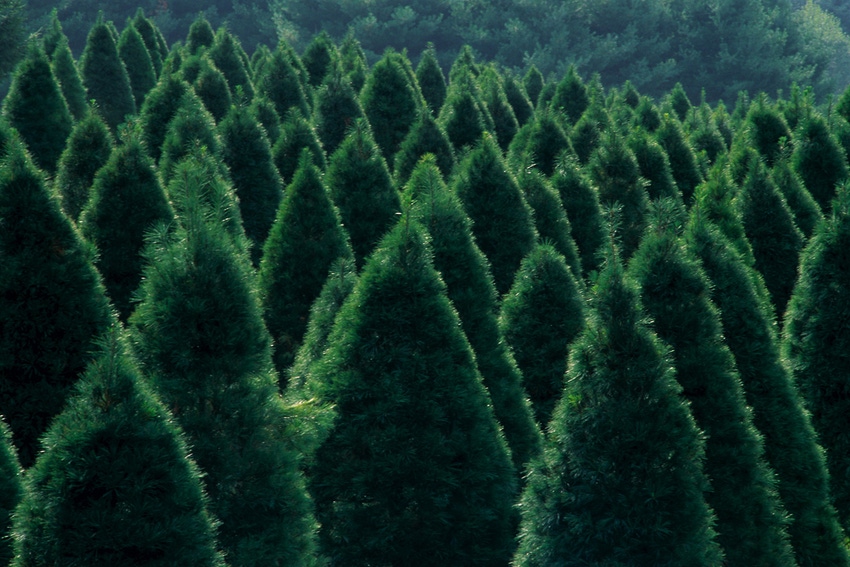
With Christmas just a few days away you may have read about a shortage of real Christmas trees this holiday season.
The shortage was reported as the result of the Great Recession about a decade ago when cash-strapped consumers with tight wallets cut back on buying many things including the annual fresh and real Christmas tree. Christmas tree growers responded to the reduced demand and planted other crops to bring in family income to wait out the Scrooge-like financial downturn.
Growing a real Christmas tree takes from three to 10 years depending on the area of the country – three to five years in warmer states like Mississippi where my family grew Christmas trees for about 30 years, and 7 to 10 years in the Upper Midwest.
While Christmastime can be a jovial month-plus time for families, Christmas tree growers work 12 months a year to grow a tree, investing sweat equity and tender loving care to grow a ‘perfect tree,’ plus a few less-than-perfect trees that only Charlie Brown could love – typically the end result of extreme drought, hail storms, or other natural occurrences.
At the Blake Christmas tree farm, the Eastern red cedar was the Christmas tree variety of choice by consumers followed by the Arizona cypress, and in later years pine varieties. The red cedar was always my favorite for its wonderful scent and how nature’s natural odor wafted through the house during the holiday season.
Our farm was strictly a U-cut Christmas tree farm. Not a single tree was cut several months before Christmas and shipped hundreds or thousands of miles to sit in a commercial tree lot from mid-November on. The only way one of our trees was cut was by a customer with a hand saw. If they didn’t have the physical means to saw it down then a member of the Blake family would drop to the ground – hopefully not in a fire ant bed! – to saw until the family yelled T-I-M-B-E-R! It was a fun family experience.
Christmas tree prices at our family farm in those days - the early 1970s - was 50 cents per foot, and later increased to 75 cents/foot. The Christmas tree prices I've seen for this year's Christmas season were about $10/foot.
The current Christmas tree shortage is hard for tree growers to stomach. Not only does it create serious cash flow problems for growers but it’s hard to see people miss out on a tree that’s so natural and sustainable. Plus, a natural tree makes the inside of the house smell like the out-of-doors. Divine!
A tree grower can get quite squeamish watching a person buy a fake tree at a local store. I know this because I – a former Christmas tree grower – have an artificial Christmas tree in my house. I hear your question - Why would a Christmas tree grower have a fake tree in their house?
My wife has severe allergies and gets very ill from a real tree in the house. She loves the smell of a real tree until the extreme headaches start and nasal passages clog. Since my wife is No. 1 in my book her health comes first. I just enjoy real trees whenever I’m outside the rest of the year.
Last Sunday at church, the pastor asked for a show of hands of families who have real Christmas trees this year in their homes. Out of about 1,000 people, I counted just three measly hands. It wasn’t the most accurate survey as spur of the moment surveys go but those hands counted on one hand of fingers was a disappointing sight.
Yet whether real or fake, decorated Christmas trees are a beautiful sight to see. They calm many people down, including this writer, delivering serenity and purpose for the season.
I hope you revel in the beauty of your Christmas season and take a long break from the rat race of life to soak in the peace that only Christmas trees can deliver. Stare at the lights, take deep breaths, and relish the spirit of this wonderful time of the year.
From my home to yours, Merry Christmas and God bless!
About the Author(s)
You May Also Like






